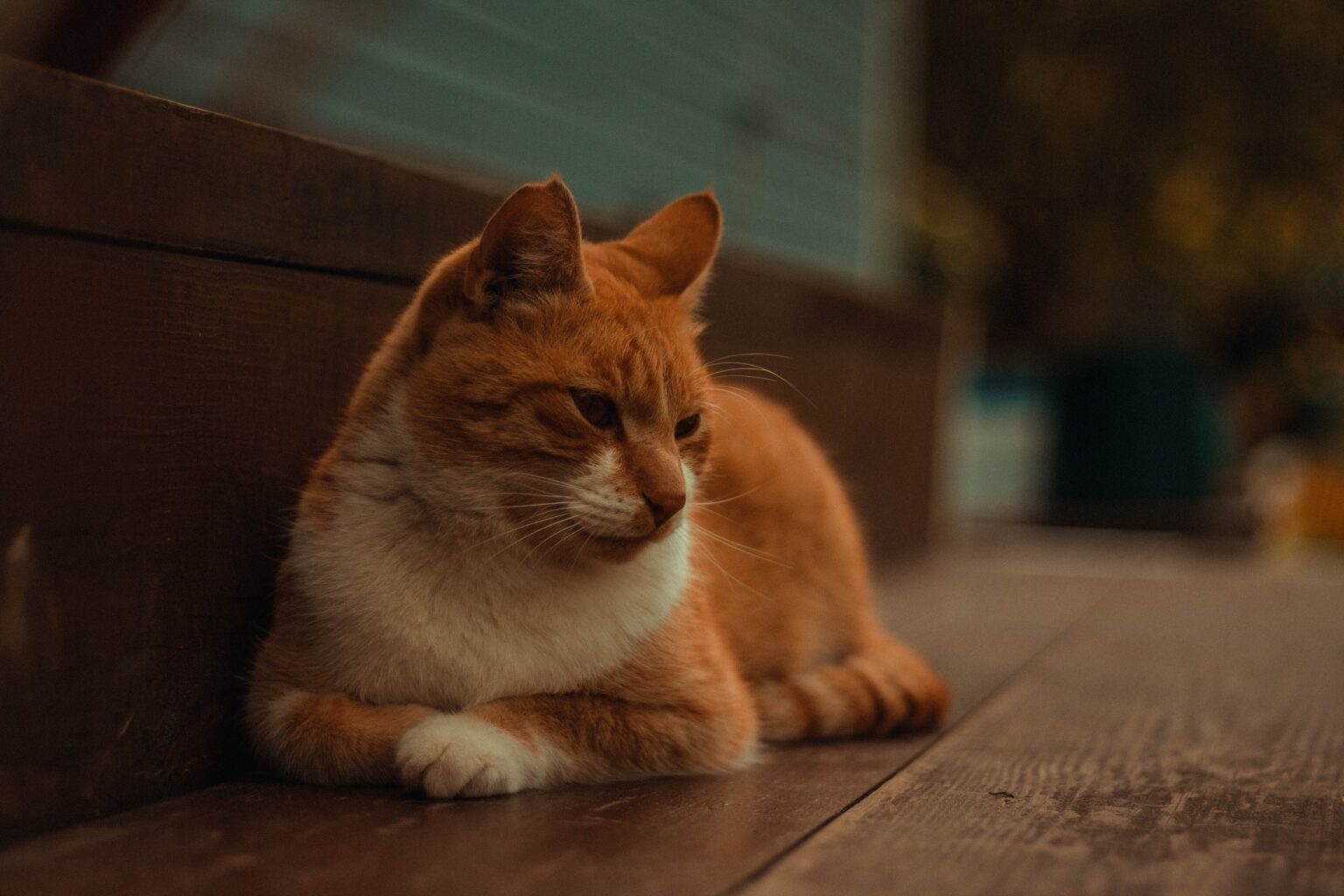Introduction to Senior Cat Care
Senior cats are generally defined as cats over 11 years old. As cats reach their senior years, their bodies and behaviors start to change. It is important for cat owners to understand these changes and adjust care accordingly to keep senior cats healthy and happy.
Some key things to know about caring for senior cats include:
- Senior cats have different nutritional needs – feeding age-specific cat food is recommended
- Creating a comfortable, easily accessible home environment helps senior cats
- More frequent veterinary checkups are needed to monitor health
- Senior cats benefit from exercise and play adapted to their abilities
- Behavior and activity levels may change as cats age
- Quality of life is paramount – end of life care may eventually be needed
With extra TLC from their owners, many senior cats can continue living fulfilling lives into their late teens or even early 20s. As cats enter the geriatric life stage, their care routine needs to be re-evaluated and tailored to their changing needs. Being proactive and attentive to changes in an aging cat can help detect any medical issues early and improve longevity and welfare.
Physiological Changes in Senior Cats
As cats reach senior age, their bodies undergo many changes that affect their health and care needs:
- Senses – Senior cats may experience reduced ability to smell, taste, and digest food properly. Their vision and hearing also often decline.
- Immune function – Senior cats have a weakened immune system and are more prone to infections and diseases.
- Skin and coat – Skin becomes less elastic and shedding increases. Brushing helps reduce hairballs.
- Bones and joints – Arthritis and joint stiffness are common. Cats may have difficulty with mobility and jumping.
- Heart – Cardiac issues like heart murmurs and hypertension increase.
- Kidneys – Senior cats are prone to kidney disease, making hydration crucial.
- Thyroid – Hyperthyroidism is a frequent disorder, causing weight loss and hyperactivity.
- Diabetes – Cats may develop diabetes as they age, requiring dietary changes.
- Cancer – Senior cats are at higher risk for tumors, masses and cancer.
Regular veterinary exams, bloodwork, and diagnostics help detect age-related diseases early. Medications, supplements, or treatment can help manage issues and improve quality of life.
Behavioral Changes in Senior Cats
In addition to physical changes, senior cats often undergo behavioral and cognitive changes as well:
- Increased vocalization – Senior cats may meow, cry or howl more frequently, especially at night. This could indicate cognitive decline, anxiety, or medical issues.
- Altered sleep patterns – It is common for senior cats to sleep more during the day and stay awake more at night. Disorientation may cause restlessness.
- Litter box issues – Inappropriate urination or defecation outside the litter box can signal medical problems or cognitive decline in senior cats. Checking with a vet is recommended.
- Disorientation or confusion – Senior cats may seem lost, stare into space, or get stuck in corners. This may be a sign of cognitive dysfunction or feline dementia.
- Changes in social behavior – Senior cats may become more clingy and demanding of attention or more withdrawn.
- Learning and memory decline – Senior cats have a harder time learning new things and may forget previously learned behaviors like using the litter box.
Causes for these behavior changes include:
- Age-related cognitive decline
- Loss of senses
- Underlying medical conditions
- Dementia or Alzheimer’s disease
To help senior cats experiencing behaviour issues, owners can try environmental enrichment, routine management, pheromones, medication, or supplements. Consulting a vet to rule out medical causes is key.
Creating a Senior-Friendly Home Environment
To help senior cats feel comfortable and thrive at home, owners should make some adjustments to create a senior-friendly environment:
- Ensure food, water, and litter boxes are easily accessible. Place them in easy-to-reach areas without stairs or obstructions.
- Provide steps, ramps, or pet stairs to help cats access furniture and beds if they have difficulty jumping.
- Offer soft, warm bedding in quiet areas for napping and sleeping. Heating pads or pet beds can increase comfort.
- Try to keep their routine and environment consistent to reduce stress and disorientation.
- Place multiple litter boxes on each floor for easy access. Use litter attractants or box liners if needed.
- Keep pathways free of clutter and sharp corners to avoid tripping hazards.
- Use night lights or motion-activated lights to help senior cats navigate in dim light.
- Provide scratching posts and vertical spaces for climbing and exercise.
- Use pheromone diffusers to ease anxiety in new or changed environments.
- Give cats access to safe outdoor spaces like enclosed patios for fresh air.
Adapting the home for a senior cat does not need to be complicated. Simple adjustments to make their favourite spaces easily reachable can go a long way in improving comfort and quality of life.
Nutrition Tips for Senior Cats
Proper nutrition is crucial for senior cats, but their needs change as they age. Here are some tips:
- Feed an age-specific cat food formulated for senior or mature cats over 7 years old. These have increased protein and reduced calories.
- Support healthy weight management. Obesity can exacerbate issues like arthritis. Regularly monitor weight.
- Increase water intake to support kidney health. Feed wet food or add water to dry food.
- Make food easy to eat – softer textures or warmer temperatures if the cat has dental issues or difficulty chewing.
- Feed smaller, more frequent meals since senior cats digest food more slowly.
- Supplements like glucosamine can help with joint health. Ask your vet.
- Monitor for increased vomiting or reduced appetite which could indicate health issues requiring medical attention.
- Provide easy access to food and water bowls. Raised bowls reduce strain.
- Assess diet on an ongoing basis and adjust as needed based on health changes.
Balanced senior cat nutrition gives aging cats the energy and nutrients they need while supporting their health and quality of life. Work closely with your vet for diet recommendations.
Common Health Problems in Senior Cats
Senior cats are prone to several medical issues that require proactive veterinary monitoring and care:
- Kidney disease – Kidney function declines with age. Signs include increased thirst and urination. Bloodwork and urinalysis help diagnose.
- Hyperthyroidism – Overactive thyroid gland. Causes weight loss, increased appetite and hyperactivity. Diagnosed via bloodwork.
- Diabetes – Common in older cats. Causes excessive thirst and urination. Managed through diet, insulin, and weight control.
- Dental disease – Leads to tooth loss, infections, and [stomatitis]. Requires professional cleaning and extractions.
- Arthritis – Causes limping, difficulty jumping, and stiffness. Managed with joint supplements, pain medication, or acupuncture.
- Cancer – Higher cancer rates in senior cats. Lumps, masses, and symptoms need prompt veterinary exam. May require biopsy, surgery, radiation, or chemotherapy.
- Heart disease – Senior cats prone to heart murmurs, hypertension, and heart failure. Caught through cardiac exams and chest xrays.
- Cognitive dysfunction – Feline dementia leading to behavior changes. Controlled through medication and environmental adaptation.
Catching age-related diseases early via senior wellness exams, bloodwork, and diagnostics allows for better management and outcomes.
Veterinary Care for Senior Cats
Senior cats require more frequent veterinary visits for wellness checks and preventive care:
- Schedule annual exams to monitor health and catch issues early. Semi-annual may be better.
- Stick to recommended vaccines and parasite prevention to protect older immune systems.
- Run labwork like bloodwork, urinalysis, and thyroid tests to screen for common diseases.
- Get dental cleanings and oral exams to maintain dental health.
- Take immediate action for symptoms like decreased appetite, weight loss, limping, or lumps to diagnose underlying causes.
- Create an emergency plan for urgent vet visits. Seniors decline faster.
- Discuss supplements, pain medication, or other treatments to improve quality of life.
- Consider acupuncture, laser therapy or other alternative therapies.
- Explore palliative or hospice care options if a cat has terminal illness.
Working closely with your veterinarian and being vigilant about health monitoring is key to properly caring for a senior cat. Proactive care improves longevity and quality of life.
Keeping Senior Cats Active and Engaged
It’s important to keep senior cats mentally and physically stimulated. Some tips:
- Engage in short, gentle play sessions using toys that are easy to chase and catch. Avoid overexertion.
- Brush or groom cats daily for social interaction and bonding.
- Use cat trees, scratching posts, and climbing spaces to encourage movement and exercise.
- Try food puzzle toys or hide treats to stimulate their mind and senses.
- Use pheromone sprays or calming aids if cats seem anxious or stressed.
- Consider adopting a younger cat for social companionship. Proper introductions are crucial.
- Try petting, brushing or massage therapy for joint mobility and comfort.
- Use catnip, cat grass or other environmental enrichment to engage natural behaviors.
- Keep to a consistent daily routine and interact frequently to reduce disorientation.
- Limit loud noises, children, or parties to avoid overstimulation and fatigue.
Mental and physical activity tailored to a senior cat’s abilities goes a long way in improving mood, reducing anxiety, and maintaining quality of life. Work with your vet to determine safe exercise limits.
End of Life Care and Quality of Life
As senior cats decline, difficult decisions about quality of life must be made:
- Consider euthanasia to end suffering when terminal illness is present or quality of life diminishes.
- Explore hospice or palliative care to keep a terminally ill cat comfortable at end of life.
- Focus on effective pain management through medication, acupuncture, etc.
- Make adjustments to prioritize a cat’s comfort and happiness once lifespan is limited.
- Monitor for signs a cat is in pain, distressed, or no longer enjoying life to help inform decisions.
- Discuss advanced directives with your vet to align on end of life care wishes.
- Understand euthanasia may ultimately be the kindest option to relieve suffering.
- Allow family members to say goodbye before and after euthanasia if desired.
- Consider at-home euthanasia or hospice services to ease the process.
Quality of life is the priority when a senior cat nears end of life. Working closely with your vet can help provide a peaceful, pain-free passing.
Key Takeaways for Senior Cat Care
Caring for a senior cat requires some shifts in care, but simple adjustments can help keep cats happy and healthy in their golden years. Here are the key takeaways:
- Feed an age-appropriate diet with extra protein and reduced calories. Wet food increases hydration.
- Provide easy access to food, water, and litter for comfort and mobility.
- Monitor weight regularly since obesity strains joints. Healthy weight management is crucial.
- Increase veterinary visits for wellness checks, diagnostics, and early disease detection.
- Adapt the home environment with ramps, soft beds, litter attractants etc. to meet changing physical needs.
- Engage cats mentally and physically each day through gentle play, exercise and enrichment.
- Be alert for changes in behavior or symptoms indicating pain, disease, or distress requiring medical attention.
- Focus on quality of life and comfort. Discuss end-of-life care options with your vet when needed.
With attentive, proactive care and some adjustments as cats age, senior cats can live happily into their late teens or early 20s. Collaborating closely with your vet provides the best support for their changing needs.


